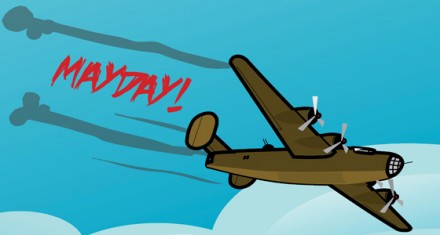Thank you to Sarah Lau who shared her deepest darkest secrets with us for this Q&A profile!
When not working as Communication Manager for ChemCentre in Western Australia, Sarah spends her time keeping things in order as the Secretary of the ASC. As a long-term member, Sarah’s commitment to the ASC is a great example of what keeps a volunteer organisation like ours running like clockwork. She kindly took some time out of her busy schedule to answer some ASC profile pop-quiz questions.
Read on to find out about everything from ASC WA events to malformed origami!
When you were a little girl, what did you want to be when you grew up?
As a small child, my career choices were heavily influenced by books and television, so I went through phases of wanting to be a journalist, a police officer, a lawyer… at one point I’d even settled on being a spy. Eventually when I hit high school I decided I wanted to get into science, but a disastrous Year 12 practical chemistry exam made me realise that lab work wasn’t for me. So I decided to combine my passion for science with my love of talking and working with people, which led me to science communication.
Apart from being superstar secretary of the ASC, what work do you do?
In my daily role, I am the Communication Manager at ChemCentre, the WA chemical and forensic science facility. This is a fascinating and varied job which sees me doing everything from briefing media on synthetic drugs to devising marketing strategies for air monitoring analysis. Right now I am working with our team to deliver a series of August outreach activities, tying into National Science Week, and culminating with ChemCentre’s annual Open Day. (Shameless plug – if you’re in WA, come by on Saturday 24 August!)
With another hat on, I work as a science communication and presentation consultant. The most exciting role I have taken on recently was for The University of Western Australia, working with some of UWA’s highest profile scientists to deliver the Science for our Future Festival program across South East Asia.
Has your time with the ASC helped or hindered your work?
I joined ASC as a student when I was studying Science Communication at The University of Western Australia. I found it was very useful, as it gave me a chance to engage with established professionals and consider future career directions.
As an early career professional, being involved with ASC, and particularly volunteering at the branch level, meant that I had the chance to develop skills and build a network of contacts.
Now, my role with ASC has grown to allow me to support the evolution of ASC as we expand and move towards a professional association. As I’ve become more involved with ASC, one my favourite things has been the chance to connect with ASC members from across Australia and hear their experiences.
Why is science communication important?
I see science communication as ‘bridging the gap’ – bringing skills and expertise to connect the world of science and an intended audience. I’ve always considered that science communicators help make science accessible, relevant and engaging. Science communicators also bring perspective and expertise to scientists to help the scientific process in the modern world. The benefits to ensuring science is communicated are wide-ranging, including better informed decision making in the wider community, and increased uptake of science at the policy and governance level. I think the recognition of science communication as a specialisation is increasing, and along with it, an appreciation of the value of science communicators.
What ASC events are you looking forward to this year?
In WA, there is a fantastic local committee which has worked hard to create a diverse programs of events, including social, professional and networking events. We’ve had some great evaluation events and I’m looking forward to this program continuing this year. Fast forward to 2014 – I am excited about the ASC National Conference in Brisbane!
When you are not science communicating, what are your hobbies/interests?
Not much has changed since I was young, so books and television still feature prominently. I adore music and I’m easily distracted by music videos. I also love checking out the great cafes and bars now popping up all over Perth. And for the novelty category – I enjoy attempting geometric origami structures, which is an odd choice for someone with little artistic ability or patience!

